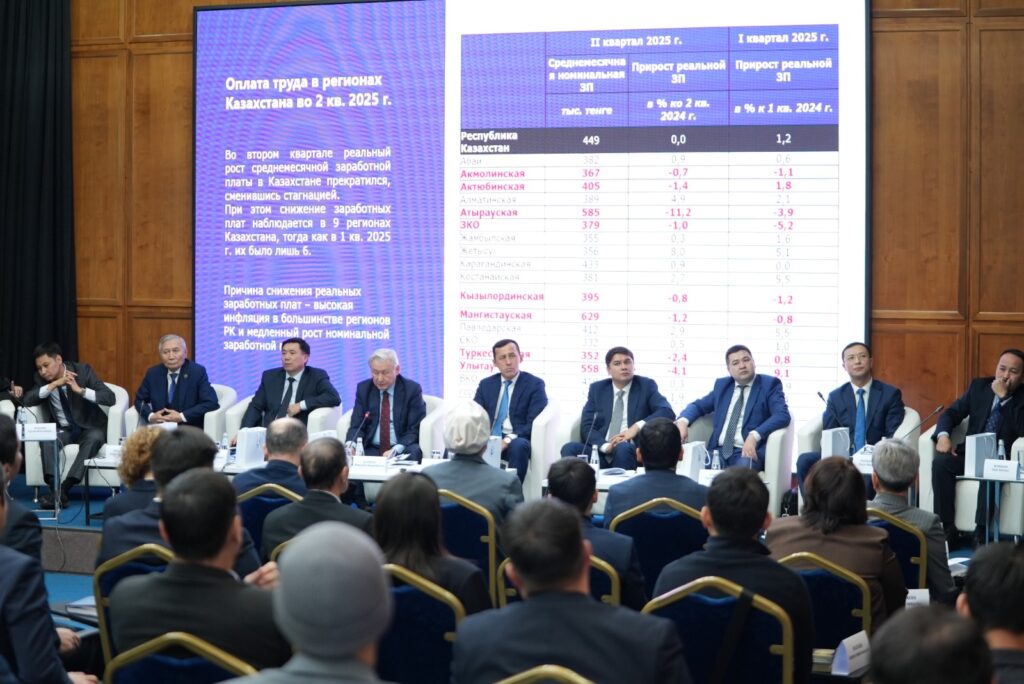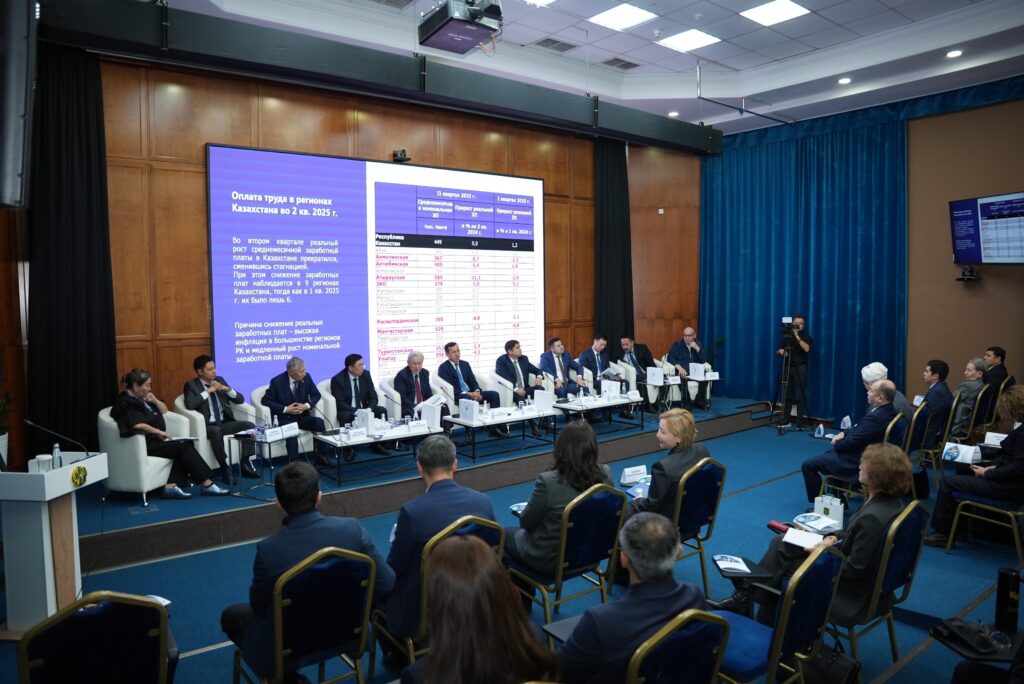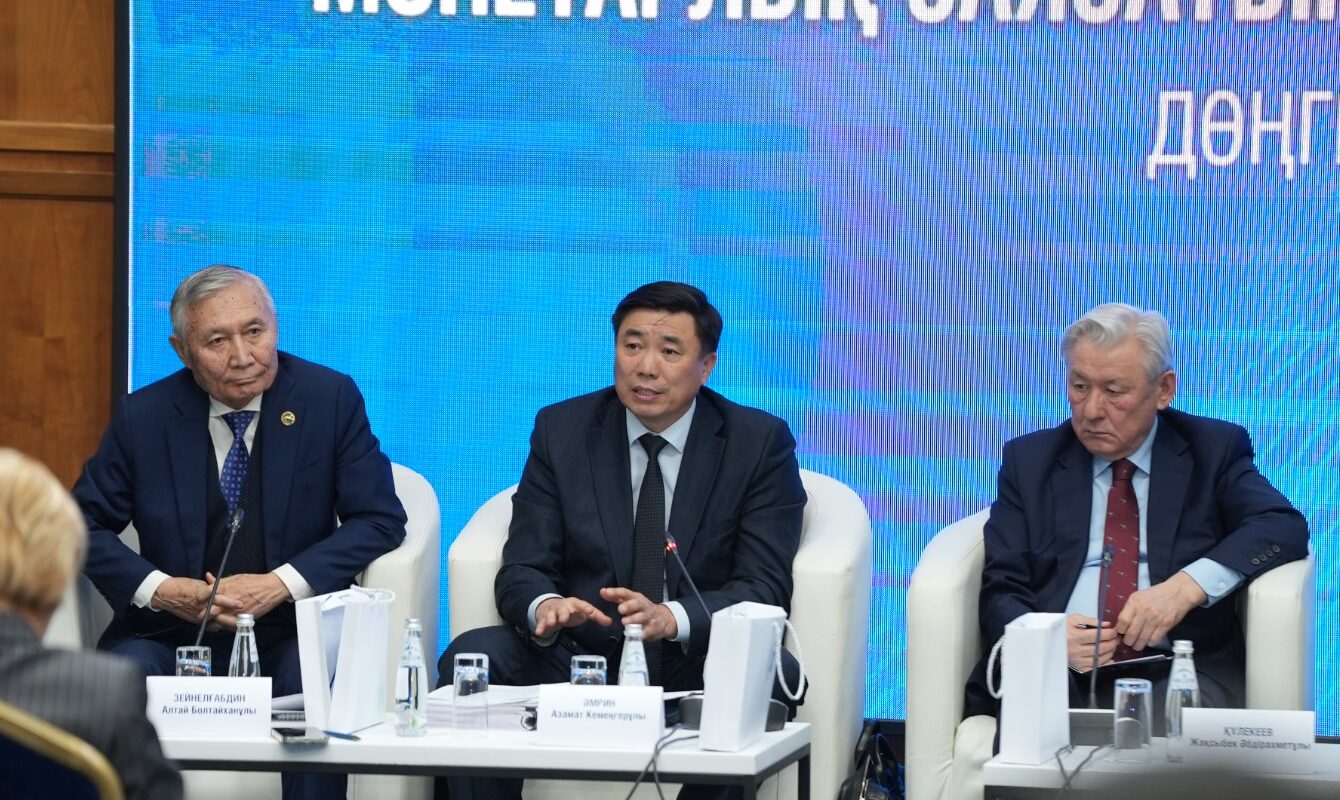On November 13, 2025, the Academy of Public Administration under the President of the Republic of Kazakhstan hosted a roundtable discussion titled “New Approaches to the Fiscal and Monetary Policy of the Republic of Kazakhstan,” dedicated to the Day of the Financier. The event was held on the platform of the “Economist+” discussion club in an expert-session format.
During the discussion, participants reviewed modern approaches to the development and implementation of fiscal and monetary policy, as well as ways to improve the coordination of financial, tax-budget, and monetary sectors. Experts emphasized that effective coordination of economic policy is essential for stabilizing inflation, preventing economic stagnation, and ensuring sustainable growth.
The roundtable brought together representatives of central and local executive bodies, the expert and academic community, as well as master’s and doctoral students of the Academy.
Speakers included: Zhaksybek Kulekeev, Chairman of the Board of Directors of L.N. Gumilyov Eurasian National University, Ayzamat Amrin, First Vice Minister of National Economy of the Republic of Kazakhstan, Yerzhan Birzhanov, Vice Minister of Finance of the Republic of Kazakhstan, Rustem Orazalin, Director of the Monetary Policy Department of the National Bank of Kazakhstan, Nurlan Katrenov, Director of the Analysis and Reporting Department of the Higher Audit Chamber, Rasul Rysmambetov, financial analyst, Serik Zhumabaev, Professor at Astana International University

Speakers highlighted the importance of professional dialogue and expert evaluation in improving state economic policy. Key topics discussed included the assessment of fiscal burden, inflationary risks, and the efficiency of budget expenditures.
According to First Vice Minister of National Economy Ayzamat Amrin, a new Budget Code was signed in March of this year. Prior to its development, the 2008 Budget Code was evaluated for compliance with International Monetary Fund standards.
“The recommendations of international experts formed the basis of the updated Budget Code. Its provisions have already been applied in the formation of the 2026–2028 national budget and the development of the ten-year forecast. For the first time, expenditure growth rates are strictly tied to economic potential and the target inflation level: under the new budget rules, they will amount to 108.7% in 2026, 109.1% in 2027, and 109.3% in 2028, compared to 121% prior to the reform. The guaranteed transfer from the National Fund is fixed at 2.77 trillion tenge annually for 2026–2028, and the use of targeted transfers is not envisaged,” noted Amrin.
The event served as a platform for exchanging analytical insights and strengthening cooperation among government bodies, researchers, and the educational sector.

